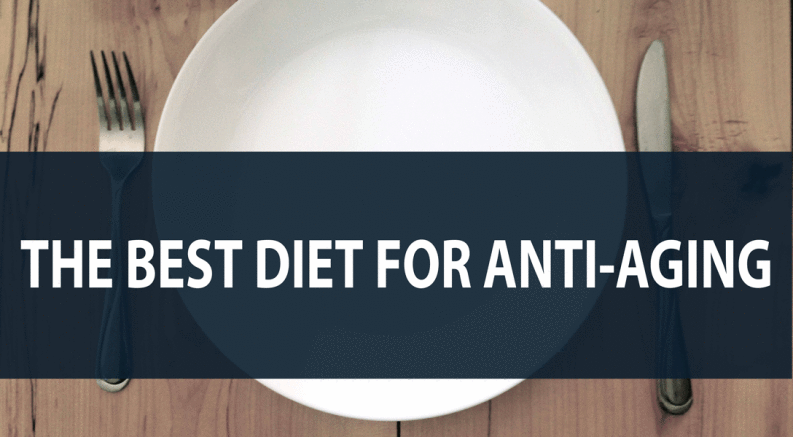We all know that nutrition has important long-term effects on our health, yet most of us can’t quite agree on what THE optimal diet should be. Living in an environment so conducive to overfeeding, we often forget how much we eat may be just as important as what we eat.
In early 1930s, Clive McCay systematically and sizably studied the relationship between calorie restriction and longevity in rats. During this 4-year study, the calorie-restricted groups lived about 50% longer than the control group.
What Do We Know About Calorie Restriction?
Although there hasn’t been any life-long studies of calorie restriction in humans, we have come a long way.
In a 2014 review, the authors concluded that calorie restriction with adequate nutrition is the only non-genetic, and the most consistent drug-free intervention that extends lifespan in animals (including mammals).
Here are a few highlights from some recent studies:
- People with the longest life expectancy on earth, the Okinawans, consume 40% fewer calories than Americans.
- Long-term caloric restriction can add 3-13 years to life expectancy.
- Long-term calorie restriction may lead to lower body fat and slower rate of muscle loss with age.
- Calorie restriction may also delay many disease processes associated with age, such as cancer, diabetes, arthrosclerosis, cardiovascular disease, and neurodegenerative disease.
How exactly does Calorie Restriction improve healthy aging?
There is no question that the advancement of science and medicine has allowed us to live longer. Medical and public health interventions have extended life by about 30 years in developed countries in the last century. Now the question has become how can we age healthier and add life to our years?
Calorie restriction may be part of the answer, and this is how it works.
The simple act of mild calorie restriction (10-20%) apparently has a wide array of biological effects. It increases our resistance to stressors by changing DNA expressions, and signaling the pathways for anti-aging. Multiple studies also link calorie restriction to decreased insulin resistance, improve mitochondrial health, and reduced inflammation. Mitochondria are the little energy factories in our cells. Let’s just say if it doesn’t function well, the result is a horrific cellular death spiral. In terms of inflammation, we all know now it is linked to all kinds of chronic disease processes, including cancers, cardiovascular disease, type II diabetes, Alzheimer’s… you name it.
When you combine all these biological effects of calorie restriction, it is no wonder that it has become a research priority for the US National Institute on Aging.
What does this mean in real life?
Although we are not certain about the long-term effects of calorie restriction in humans, human studies did indicate that 20% calorie restriction for 2-6 years can reduce body weight, blood pressure, cholesterol, and blood sugar.
Here’s some additional thoughts and what I would do:
- Cutting calorie intake by 15-20%, or stop eating when feeling 70-80% full.
- Incorporate foods that mimic the biological effects of calorie restriction, including sweet potatoes, marine-based carotenoid-rich foods (e.g. seaweeds and kelp), and turmeric.
- I use specific brands of turmeric and/or resveratrol supplements for my patients. I find it interesting that both substances are on the lists of dietary sources that mimic the positive effects of calorie restriction.
- The same research shows that exercise works well along with mild calorie restriction and supplements, such as resveratrol.
- In terms of Neuro-Structural Chiropractic and functional neurology, calorie restriction can serve as an additional brain-protective measure by regulating cell autophagy. Old or damaged cells are destroyed by a normal process called autophagy. This is a mechanism that fails in diseases, such as Alzheimer’s and Parkinson’s.
- Calorie restriction is NOT recommended for elderly…yet, due to potential adverse effects. However, the things that mimic the benefit of calorie restriction mentioned above can be used by elderly as safe and effective alternatives.
Before we go crazy chasing after those ever-changing fad diets, consider simply reducing food intake slightly. Sometimes, less is more.
References:
- http://www.ncbi.nlm.nih.gov/pubmed/24079773
- http://www.ncbi.nlm.nih.gov/pubmed/17717102
- http://www.ncbi.nlm.nih.gov/pubmed/21411859
- http://www.ncbi.nlm.nih.gov/pubmed/22928085
- http://www.ncbi.nlm.nih.gov/pubmed/25159268
- http://www.ncbi.nlm.nih.gov/pubmed/23601134
- http://www.ncbi.nlm.nih.gov/pubmed/24316687
- http://www.ncbi.nlm.nih.gov/pubmed/20234038
- http://www.ncbi.nlm.nih.gov/pmc/articles/PMC3677990/
About the Author
Dr. Lily Semrow is a Board Certified Chiropractic Neurologist who focuses on Neuro-Structural Correction. She has a B.S. in Nutrition and a doctorate in Chiropractic. She has a passion for serving families, and helping people who could not get better through traditional and alternative means.


Comments 1
Food for thought.. love it!